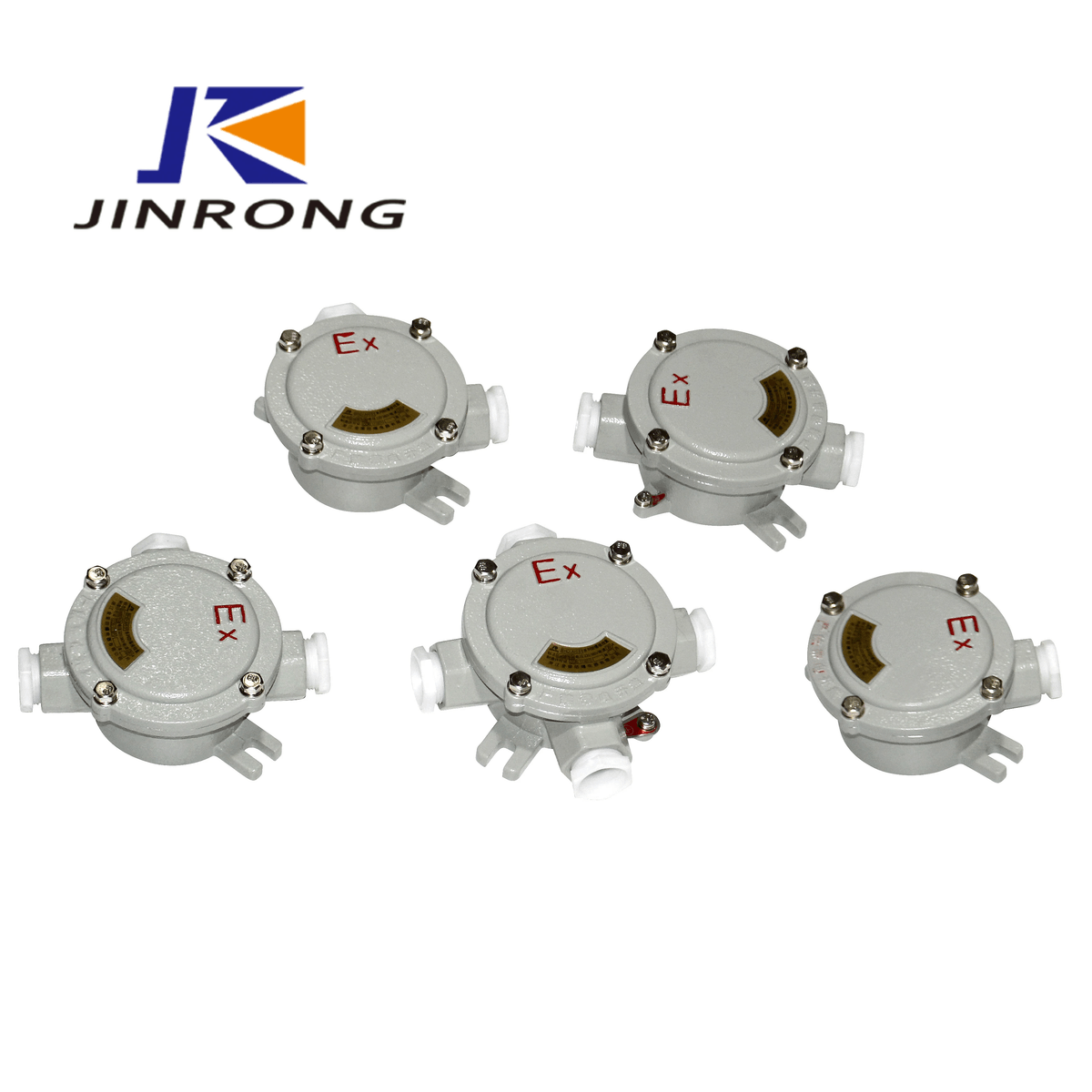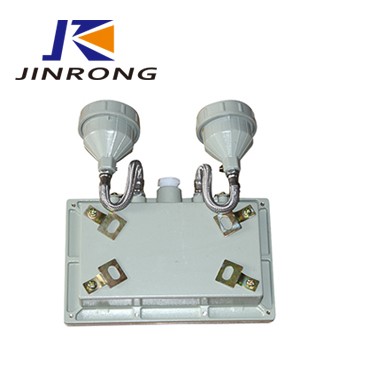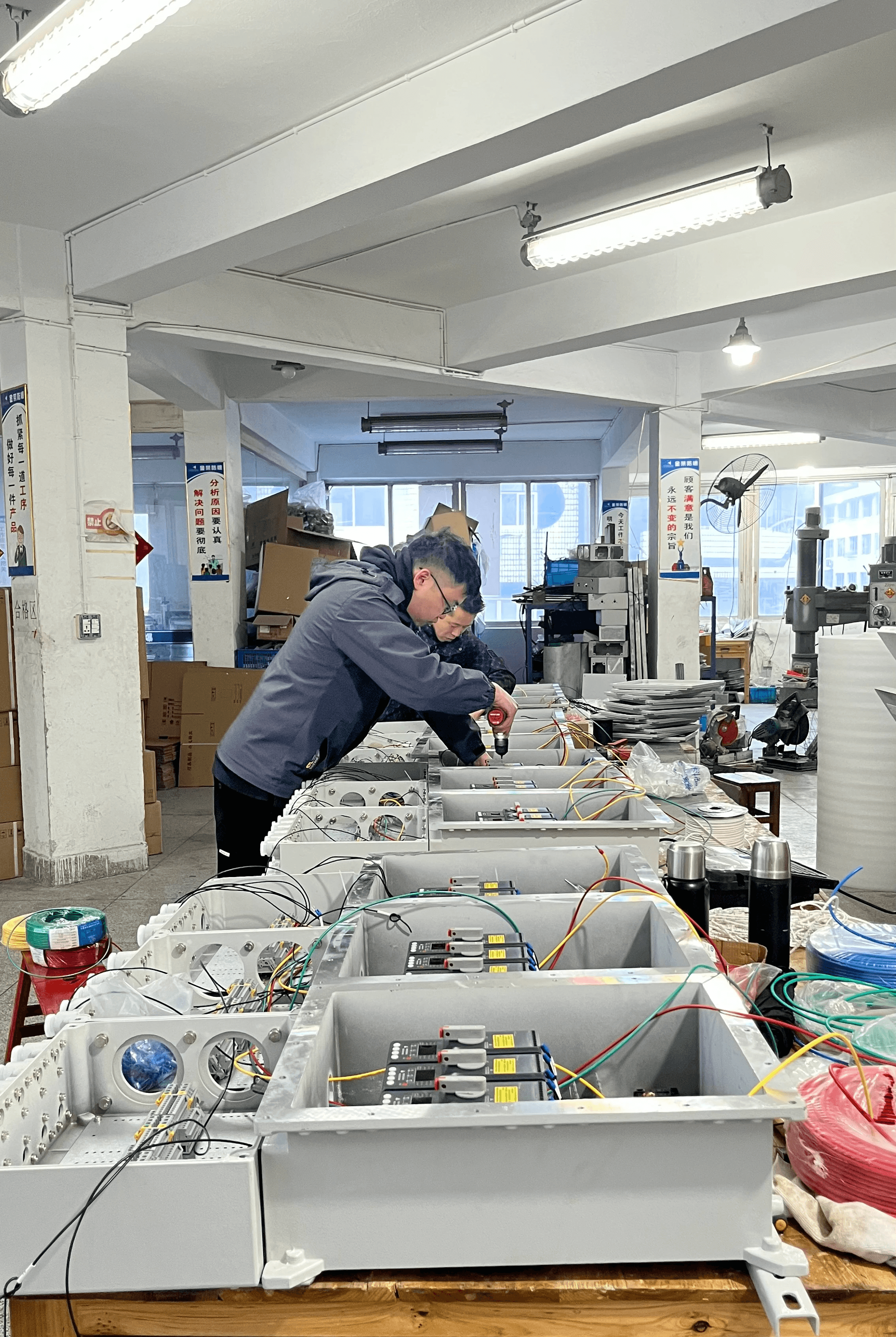Introduction

Junction boxes are often the unsung heroes of electrical systems, quietly ensuring safety and organization behind the scenes. But what are junction boxes used for? They serve a multitude of functions, from protecting electrical connections to facilitating easier maintenance. Understanding their importance is crucial for anyone dealing with wiring, whether in a home or industrial setting.
Understanding Junction Boxes and Their Importance
Why would you need a junction box? The answer lies in the essential role they play in safeguarding electrical connections and preventing hazards. Junction boxes house wire connections safely, reducing the risk of short circuits or electrical fires, which makes them indispensable in any wiring project.
Common Types and Materials of Junction Boxes
When it comes to junction boxes, variety is the name of the game. You can find them made from materials like plastic or metal, each serving different purposes depending on your needs. From weatherproof options for outdoor use to standard designs for indoor applications, understanding what are junction boxes used for helps you choose wisely.
How Junction Boxes Ensure Safety and Efficiency
The functions of a junction box extend beyond mere wire containment; they enhance safety while promoting efficiency in electrical systems. By providing a secure location for multiple circuits to connect, these boxes help manage complex wiring setups seamlessly. So when should you use a junction box? Whenever you're making significant changes to your electrical layout or adding new circuits to ensure everything runs smoothly without compromising safety.
What Are Junction Boxes Used For in Electrical Systems

Junction boxes play a pivotal role in electrical systems, serving multiple functions that enhance safety and efficiency. Understanding what are junction boxes used for is crucial for both homeowners and professionals alike. They are not just containers for wires; they are essential components that protect connections, organize wiring, and facilitate circuit management.
Protecting Electrical Connections
One of the primary functions of a junction box is to protect electrical connections from environmental hazards and physical damage. When considering why you would need a junction box, think about the potential risks associated with exposed wires—short circuits, electrical shocks, or even fires can be devastating consequences. By enclosing these connections within a secure housing, junction boxes mitigate these risks effectively.
Moreover, junction boxes provide insulation against moisture and dust, which can compromise the integrity of electrical connections over time. This protection is especially important in areas prone to temperature fluctuations or humidity—think attics or basements. So when asking yourself when should you use a junction box? The answer is clear: whenever you have exposed wiring that requires safeguarding.
Organizing Wires for Easier Maintenance
Another important aspect of what are junction boxes used for lies in their ability to organize wires neatly and efficiently. With various circuits running through your home or industrial setup, keeping everything tidy can feel like herding cats! Junction boxes serve as central hubs where multiple cables converge, making it easier to trace wires during maintenance or troubleshooting.
Having all your wiring organized not only simplifies repairs but also enhances safety by reducing clutter and minimizing confusion during electrical work. When you consider what are the functions of a junction box beyond protection, organization becomes paramount—especially if you’re dealing with complex systems that require frequent adjustments or inspections.
Offering a Junction for Multiple Circuits
Junction boxes also offer an essential service by acting as a junction point for multiple circuits within an electrical system. This capability allows electricians to branch out power sources efficiently without creating chaos with tangled wires everywhere! So why would you need a junction box? Because they enable seamless integration of additional circuits while maintaining compliance with safety regulations.
When planning your electrical layout—be it at home or in an industrial setting—understanding when should you use a junction box becomes vital for future expansion needs as well as current functionality requirements. By providing designated points where circuits can connect without direct splicing or excessive wiring runs, junction boxes streamline installations significantly while ensuring everything remains accessible.
In conclusion, knowing what are junction boxes used for can elevate both your understanding and application of electrical systems dramatically—a must-have knowledge whether you're renovating your space or managing complex installations!
The Role of Junction Boxes in Home Wiring

Simplifying Home Renovations
Home renovations can be a daunting task, but understanding why you would need a junction box can make the process much easier. When you're updating your electrical system or adding new fixtures, junction boxes provide a safe and organized way to connect wires. This not only simplifies the renovation process but also reduces the chances of errors that could lead to costly repairs later on.
Moreover, when should you use a junction box during renovations? Anytime you're making changes to your electrical layout is an ideal time to consider incorporating these handy devices. They help ensure that all connections are secure and compliant with local codes, making your renovation both efficient and safe.
Enhancing Aesthetics of Electrical Systems
While functionality is key, enhancing the aesthetics of electrical systems is another important role that junction boxes play in home wiring. These boxes can be installed neatly within walls or ceilings, allowing for clean lines and a polished look throughout your space. By using junction boxes strategically, you can hide unsightly wires and create an overall more visually appealing environment.
Plus, when discussing what are the functions of a junction box in terms of aesthetics, it's clear they help maintain order amidst chaos—like organizing cables behind entertainment units or under desks. This not only improves appearance but also makes maintenance easier down the line; no one wants to dig through tangled wires!
Providing Flexibility in Layout Changes
One major advantage of using junction boxes is their ability to provide flexibility in layout changes within your home’s electrical system. If you've ever wondered if you can connect wires without a junction box, think again; doing so might limit your options for future modifications and could even pose safety risks! Junction boxes allow for easy rerouting or addition of circuits without tearing apart walls or risking damage to existing wiring.
This flexibility becomes particularly valuable during seasonal changes or when hosting gatherings where additional lighting might be needed—think holiday lights! Understanding when should you use a junction box helps homeowners adapt their spaces quickly while ensuring safety remains paramount.
In conclusion, whether simplifying renovations or enhancing aesthetics while allowing for future flexibility, junction boxes are indispensable tools in home wiring projects. Their multifaceted roles ensure not only compliance with safety standards but also create beautiful living spaces tailored to individual needs.
Industrial Applications of Junction Boxes

Junction boxes are indispensable in industrial settings, serving a multitude of purposes that directly impact efficiency and safety. From heavy-duty electrical needs to compliance with stringent safety standards, these boxes are engineered to withstand the rigors of industrial environments. Understanding what junction boxes are used for in these settings can significantly enhance operational reliability.
Supporting Heavy-Duty Electrical Needs
In industries where power demands are high, junction boxes play a crucial role in managing complex electrical systems. They provide robust support for heavy-duty wiring, ensuring that connections remain secure even under significant load. When should you use a junction box? Whenever you're dealing with multiple circuits or high-voltage applications, these boxes become essential for maintaining system integrity and performance.
The functions of a junction box extend beyond mere connection points; they also act as protective enclosures that safeguard wires from damage and wear. This is particularly important in environments where machinery operates continuously or where vibrations are common. Why would you need a junction box? To ensure that your electrical connections can handle the demands of industrial machinery without compromising safety or efficiency.
Compliance with Safety Standards
Safety is paramount in any industrial setting, and junction boxes help meet various compliance requirements set by regulatory bodies. These boxes must be constructed from materials that can withstand heat, moisture, and other environmental factors while also providing adequate insulation to prevent electrical hazards. Can I connect wires without a junction box? Technically yes, but doing so may violate safety codes and increase risks associated with poor connections.
By using quality junction boxes designed to comply with industry standards, businesses not only protect their workers but also avoid costly fines associated with non-compliance. The importance of adhering to safety regulations cannot be overstated; it safeguards both personnel and equipment while fostering a culture of responsibility within the workplace. Understanding what are junction boxes used for in relation to compliance helps companies maintain safe operational practices.
Weatherproofing and Environmental Protection
In many industrial applications, especially those outdoors or in harsh conditions, weatherproofing is critical for maintaining functionality over time. Junction boxes designed for such environments often feature seals and coatings that prevent moisture ingress while resisting corrosion from chemicals or pollutants. When considering what are the functions of a junction box in this context, it becomes clear that protection from environmental factors is one of their primary roles.
Furthermore, utilizing weatherproof junction boxes minimizes downtime due to maintenance issues caused by water damage or corrosion-related failures—saving both time and money in the long run. Industries operating near bodies of water or exposed to extreme temperatures should prioritize these specialized options when determining when should you use a junction box? Ultimately, investing in quality weatherproof solutions ensures long-lasting performance no matter the conditions.
Fire Safety and Junction Boxes

Reducing Fire Hazards
One of the primary functions of junction boxes is to reduce fire hazards in electrical installations. They provide a protective barrier around electrical connections, preventing exposure to flammable materials that could ignite if wires were left unprotected. When asking What are junction boxes used for? the answer includes safeguarding against sparks or heat build-up that might otherwise lead to dangerous situations.
Furthermore, junction boxes help contain any potential faults within the system itself. If a wire were to short-circuit inside the box, the enclosed environment limits the spread of heat and flames, allowing for safer operation overall. This leads us to consider why would you need a junction box? The answer lies in its ability to enhance safety measures within your home or industrial setting.
Importance of Quality Materials
The materials used in constructing junction boxes significantly influence their effectiveness in ensuring fire safety. High-quality materials like metal or durable plastics resist heat better than inferior options, making them less likely to fail under stress. When considering when should you use a junction box? Opting for one made with quality materials is essential for long-lasting performance and safety assurance.
Moreover, using certified materials ensures compliance with local building codes and regulations regarding electrical installations. Poor-quality junction boxes can compromise your entire wiring system's integrity, leading not only to operational failures but also increasing fire risk dramatically. Understanding what are the functions of a junction box goes beyond mere connectivity; it encompasses maintaining safety standards as well.
How They Help in Emergency Scenarios
In emergency situations where electrical fires occur, having reliable junction boxes can make all the difference between minor incidents and catastrophic events. Their design often includes features like knockouts for easy wire entry while maintaining secure closures that prevent accidental disconnections during emergencies. Can I connect wires without a junction box? While technically possible, doing so increases risk factors significantly during unforeseen circumstances.
Additionally, well-placed junction boxes facilitate easier access for emergency responders who may need to disconnect power quickly during an incident—saving valuable time when every second counts! The strategic use of these devices ensures that your wiring remains organized while providing critical support under pressure—further solidifying their importance in both residential and commercial applications alike.
Jinrong's Expertise in Junction Boxes

When it comes to junction boxes, Jinrong stands out with a reputation built on innovative designs and quality manufacturing. Their products are tailored to meet diverse applications, ensuring that every electrical project is equipped with the right tools for success. Understanding what junction boxes are used for is crucial, and Jinrong’s offerings simplify this process.
Innovative Designs for Diverse Applications
Jinrong’s innovative designs cater to a variety of needs across multiple sectors, from residential wiring to industrial installations. These junction boxes not only serve essential functions but also adapt easily to different environments, showcasing their versatility. Why would you need a junction box? With options like weatherproofing and customizable layouts, Jinrong ensures that their products can handle any situation, making them ideal for various applications.
The company emphasizes user-friendly features that make installation straightforward and efficient. When should you use a junction box? Whether you’re organizing wires in your home or managing heavy-duty electrical systems in an industrial setting, Jinrong has the right solution at hand. Their designs reflect an understanding of both functionality and aesthetics, providing options that look good while doing their job effectively.
Quality Assurance in Manufacturing
Quality assurance is at the heart of Jinrong’s manufacturing process; they prioritize materials that ensure safety and durability. This commitment to excellence means that customers can trust their junction boxes to perform reliably over time, reducing the risk of electrical failures or hazards. What are the functions of a junction box? By using high-quality materials and rigorous testing protocols, Jinrong guarantees that each product meets stringent safety standards.
Their dedication extends beyond just creating effective products; it involves continuous improvement based on customer feedback and technological advancements as well. Can I connect wires without a junction box? While it's technically possible, doing so can lead to complications; hence using Jinrong's quality-assured boxes provides peace of mind against potential issues down the road.
Helping Distributors Achieve Success
Jinrong doesn’t just stop at manufacturing; they actively support distributors in achieving success through comprehensive resources and training programs. By equipping distributors with knowledge about what are junction boxes used for and how best to sell them, they foster strong partnerships within the industry. This collaborative approach ensures that everyone involved understands why would you need a junction box—it's all about enhancing safety and efficiency in electrical systems.
Moreover, their marketing support helps distributors effectively communicate the benefits of using high-quality junction boxes over lesser alternatives available on the market today. When should you use a junction box? The answer becomes clear as distributors learn how these products simplify installations while maintaining compliance with safety regulations.
As technology continues evolving, so does Jinrong’s commitment to innovation—a promise they uphold by constantly improving their product lines based on emerging trends in electrical system design.
Conclusion

In summary, junction boxes play a vital role in electrical systems, offering protection and organization for wiring connections. Understanding what are junction boxes used for can help both homeowners and industry professionals make informed decisions about their electrical needs. With their essential functions, junction boxes ensure safety, efficiency, and flexibility in various applications.
The Essential Functions of Junction Boxes
What are the functions of a junction box? Primarily, they serve to protect electrical connections from damage and environmental factors while providing a secure location for wire splices. Additionally, junction boxes offer an organized way to manage multiple circuits without creating chaotic tangles of wires—essentially acting as the unsung heroes behind your electrical systems.
Why would you need a junction box? Their ability to simplify maintenance tasks is a major benefit; when repairs or upgrades are necessary, finding and accessing connections becomes much easier when they’re housed within a junction box. Furthermore, with proper installation, these boxes can significantly reduce the risk of fire hazards by ensuring that wires remain insulated and protected from external elements.
Choosing the Right Junction Box for Your Needs
When should you use a junction box? The answer lies in assessing your specific wiring requirements—if you're making splices or connecting multiple circuits together, it's time to reach for one! To choose the right type, consider factors like size, material (plastic or metal), and environmental conditions that might affect performance.
Can I connect wires without a junction box? While it’s technically possible in some scenarios, it’s not advisable due to safety concerns. A well-chosen junction box not only enhances safety but also provides an organized approach to managing your wiring needs—so why skip it?
Future Trends in Junction Box Technology
The future looks bright for junction boxes as technology continues to evolve; innovations such as smart junction boxes equipped with sensors could soon become commonplace. These advancements may offer real-time monitoring capabilities that enhance safety by alerting users about potential issues before they escalate into serious problems.
Moreover, sustainable materials are gaining traction as manufacturers focus on eco-friendly solutions that meet growing environmental standards—ensuring that what are junction boxes used for aligns with modern values of sustainability and efficiency. As we move forward into this new era of technology and design innovation, expect even more exciting developments in the world of junction boxes!

